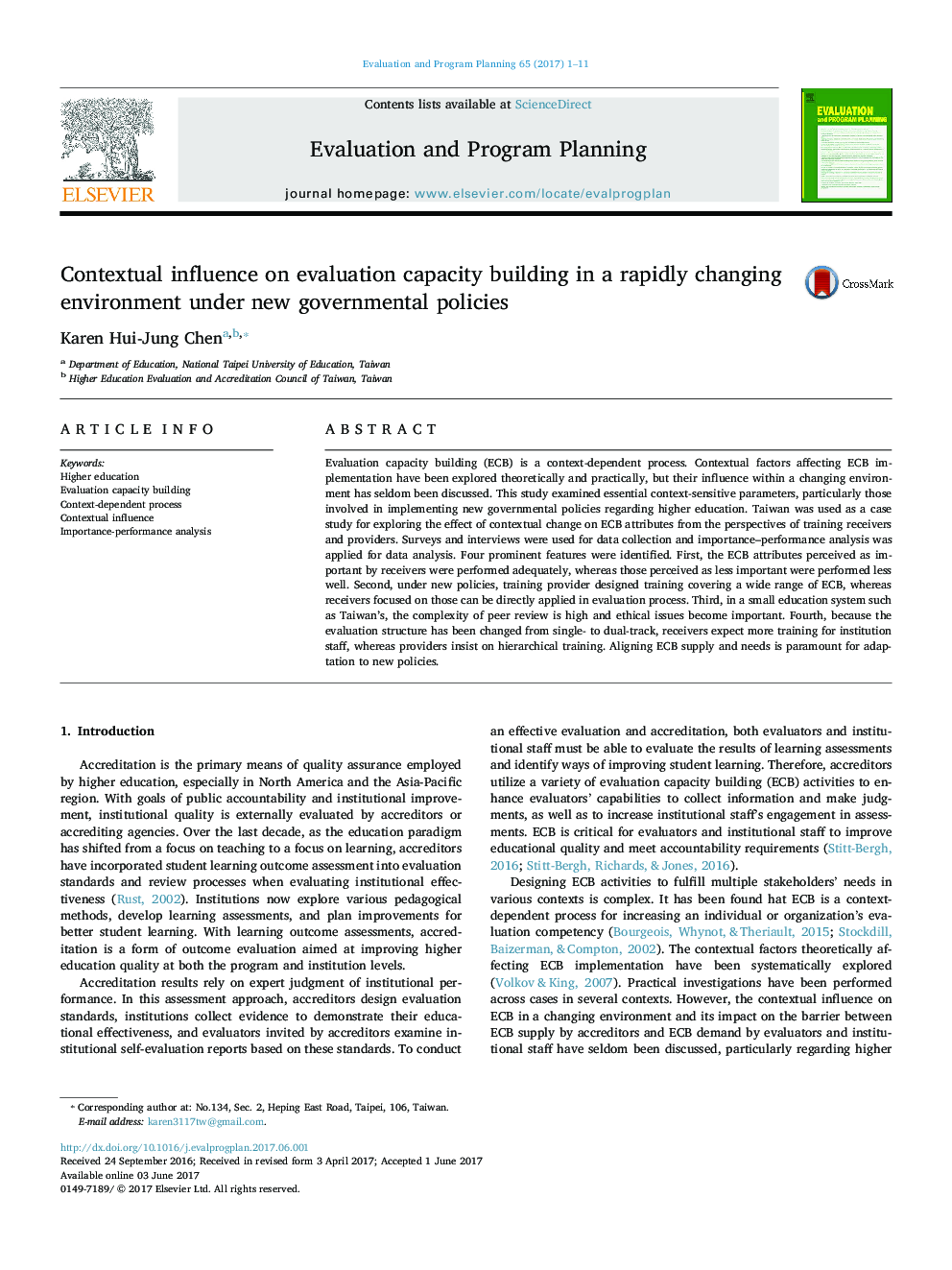| Article ID | Journal | Published Year | Pages | File Type |
|---|---|---|---|---|
| 4930933 | Evaluation and Program Planning | 2017 | 11 Pages |
Abstract
Evaluation capacity building (ECB) is a context-dependent process. Contextual factors affecting ECB implementation have been explored theoretically and practically, but their influence within a changing environment has seldom been discussed. This study examined essential context-sensitive parameters, particularly those involved in implementing new governmental policies regarding higher education. Taiwan was used as a case study for exploring the effect of contextual change on ECB attributes from the perspectives of training receivers and providers. Surveys and interviews were used for data collection and importance-performance analysis was applied for data analysis. Four prominent features were identified. First, the ECB attributes perceived as important by receivers were performed adequately, whereas those perceived as less important were performed less well. Second, under new policies, training provider designed training covering a wide range of ECB, whereas receivers focused on those can be directly applied in evaluation process. Third, in a small education system such as Taiwan's, the complexity of peer review is high and ethical issues become important. Fourth, because the evaluation structure has been changed from single- to dual-track, receivers expect more training for institution staff, whereas providers insist on hierarchical training. Aligning ECB supply and needs is paramount for adaptation to new policies.
Related Topics
Health Sciences
Medicine and Dentistry
Public Health and Health Policy
Authors
Karen Hui-Jung Chen,
